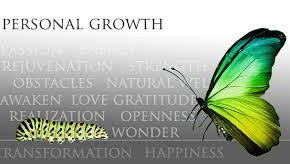 After an invigorating roller-blade around our amazing Stanley Park this glorious morning I came home to my sweet husband fixing our usual breakfast of porridge (delicious — with numerous fruits and nuts and seeds!). We had an interaction during which I made some assumptions, didn’t listen all that well, asked questions he’d already answered. It was a topic that interested me a lot — various forms of exercise and how effective they are. Our back and forth was not a quarrel, there wasn’t ill-will or upset, but we certainly weren’t on the same page, and I certainly didn’t do a stellar job of listening. I was too excited! As we wound down, he commented, “You’re not all that you crack yourself up to be.”
After an invigorating roller-blade around our amazing Stanley Park this glorious morning I came home to my sweet husband fixing our usual breakfast of porridge (delicious — with numerous fruits and nuts and seeds!). We had an interaction during which I made some assumptions, didn’t listen all that well, asked questions he’d already answered. It was a topic that interested me a lot — various forms of exercise and how effective they are. Our back and forth was not a quarrel, there wasn’t ill-will or upset, but we certainly weren’t on the same page, and I certainly didn’t do a stellar job of listening. I was too excited! As we wound down, he commented, “You’re not all that you crack yourself up to be.”
Something that really pleases me is that I didn’t get terribly out of joint. I even managed to chuckle and respond, “Well, that’s a helluva a good insult!” and carried on making my Mocha Latte. A bit later I clarified what he meant by the comment, and learned that he doesn’t think I listen as well as I think I do, that I often jump in with my ideas and don’t leave the other space for the other person, that it seems like I think I know where the conversation is going so I just take it there!
Again, after the gory details, I was actually quite pleased that I didn’t feel insulted, that I was able to hear what he was saying and reflect on it. What it brought up for me is our inclination to think better of ourselves than the facts support. Studies have shown this again and again. People tend to exaggerate their positive qualities, whether it’s their generosity, and for that matter, their popularity, health, driving ability… the list goes on and on. The tendency is actually called Illusory Superiority. It turns out, not only do we exaggerate our positives, in our self-assessment we also tend to diminish our negatives.
What a fascinating phenomenon! One could imagine our Illusory Superiority could have survival value, although the links to self-esteem are not clear, and its origins and appearance across cultures not well established. (I suggest reading the Wikipedia Article on the topic — Illusory Superiority is so intriguing and almost ubiquitous.)
For my own personal purposes, I saw our interactions as a small contribution to the “evolution of consciousness” (a favorite theme of mine, and one of the main reasons I write these pieces — my hope being that we can help each other grow and “clean up our acts”.) I was very pleased that I didn’t get defensive at the comment about my exaggerated self-assessment — regarding my listening skills. This is huge for me! Instead, I got curious and learned quite a bit!
For example, I realized I do indeed think of myself as genuinely interested in other people, and a good listener. To hear Mike’s sense of the ways in which that is not his experience of me, was useful, and then to notice my habits in a discussion later in the day was also illuminating. I do jump in, assume I know what people are going to say, don’t always let them finish. I’m not a bad person, just not the good listener I’d like to think I am! I exaggerate my positives and diminish the negatives/ Big surprise! (So nice to remember I don’t need to try, or pretend to be perfect, eh?? :-))
 That morning we also came to explicitly recognize our different styles. Mike likes slow, spacious, open discussions. Me too, at times. But I also very much enjoy fast-paced, enthusiastic, engaged interactions, where the air sizzles, the ideas fly, and energy builds. That’s a BIG difference. What to me feels like a lively interaction, might feel like a disrespectful sparring match to another. Of course, as a good listener, we need to check out how things are working for the other person. But still, I say, “Vive la difference!” We don’t all have to have the same styles of communication. What’s important is to be open to feedback, and be able to modify when needed. AND to recognize when we are caught in a bout of Illusory Superiority 🙂
That morning we also came to explicitly recognize our different styles. Mike likes slow, spacious, open discussions. Me too, at times. But I also very much enjoy fast-paced, enthusiastic, engaged interactions, where the air sizzles, the ideas fly, and energy builds. That’s a BIG difference. What to me feels like a lively interaction, might feel like a disrespectful sparring match to another. Of course, as a good listener, we need to check out how things are working for the other person. But still, I say, “Vive la difference!” We don’t all have to have the same styles of communication. What’s important is to be open to feedback, and be able to modify when needed. AND to recognize when we are caught in a bout of Illusory Superiority 🙂
Over the years my partner has steadfastly refused to feed my Ego, to give me acknowledgement and praise when and how I want it. (All kinds of acknowledgement and praise have been forthcoming, but NOT in the forms I’ve craved. Instead he’s been honest.) It’s been a big challenge for me, to put it mildly. But this morning, I actually felt I could honestly thank him for “not filling my holes”, another way (Diamond Approach speak) for feeding the Ego. It gives me a chance to grow up! And that’s the Journey, ain’t it?!
Jill Schroder is the author of BECOMING: Journeying Toward Authenticity. BECOMING is an invitation for self-reflection, and to mine our memorable moments for insights, meaning, and growth. Check the website for a sample chapter, or see the reviews to get a flavor for the volume. Follow me on Twitter, let’s be friends on Facebook ![]()




1 comment
On Faking It | Becoming The Journey says:
Oct 9, 2014
[…] than we really are. (Read more about the common human tendency toward Illusory Superiority in Vive La Difference!) I can switch to the first person here as I remember how frequently I like to think that my […]